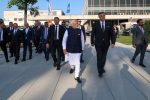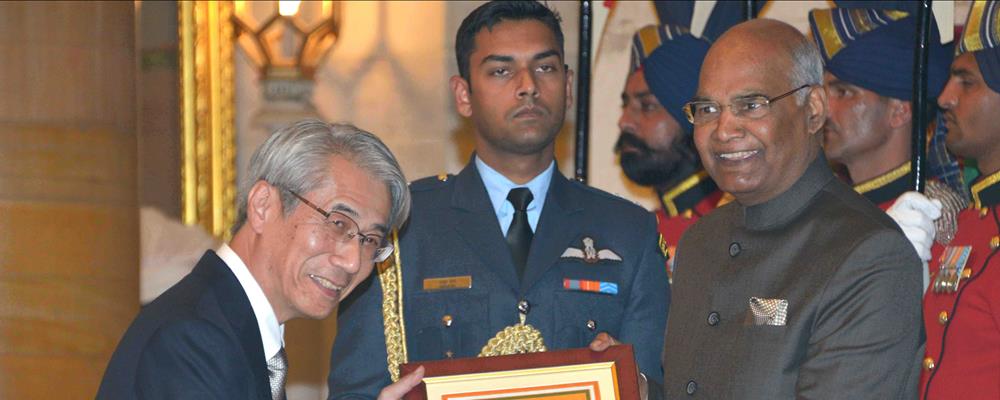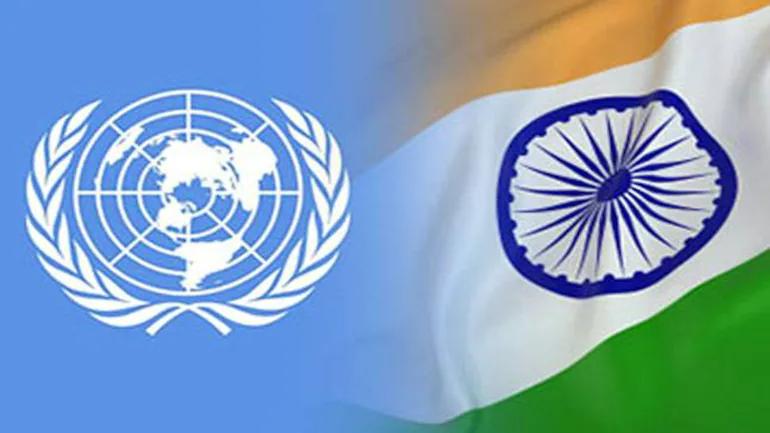Speaking on the occasion, the President congratulated Professor Hiroshi Marui for receiving the Distinguished Indologist Award and thanked him for his exemplary contribution to Indology. He said that Professor Marui has spent over 40 years working on Indian philosophy and Buddhist Studies. His many acclaimed publications and research papers are considered a final authority on several subjects the world over. As President of the Japanese Association of Indian and Buddhist Studies, he has made a significant contribution to Indology in Japan. He expressed confidence that such endeavours will lead to a greater interest in not only classical Indology but also study of India in all its aspects.
The President said that Indian culture and its many attributes have evolved over centuries. The depth of time has given it a unique strength and character. It is integral and holistic, synthetic and accommodating. That is why it could survive the onslaughts of time and transcend the limits of space. Indianness is characterized by inclusive pluralism; it is rooted in the principle of DHARMO RAKSHATI RAKSHITAH that is – Dharma or the virtuous order, which when protected, protects all without exclusion.
The President said that today, we all live as a global community. There is greater need for mutual understanding. New ideas are shaping our daily lives. People and policy makers are looking for options to make living more sustainable, one where we have a symbiotic relationship with nature and ecology. We are delving deep into our traditional knowledge and ancient wisdom to share with the humankind the best of our achievements. India is doing its best to explain the virtues of Yoga and Ayurveda for the well-being of humanity. Likewise, other nations and societies are making efforts to revive their traditional cultural expressions. In such a scenario, Indology assumes greater significance to promote better undertaking between peoples.
























